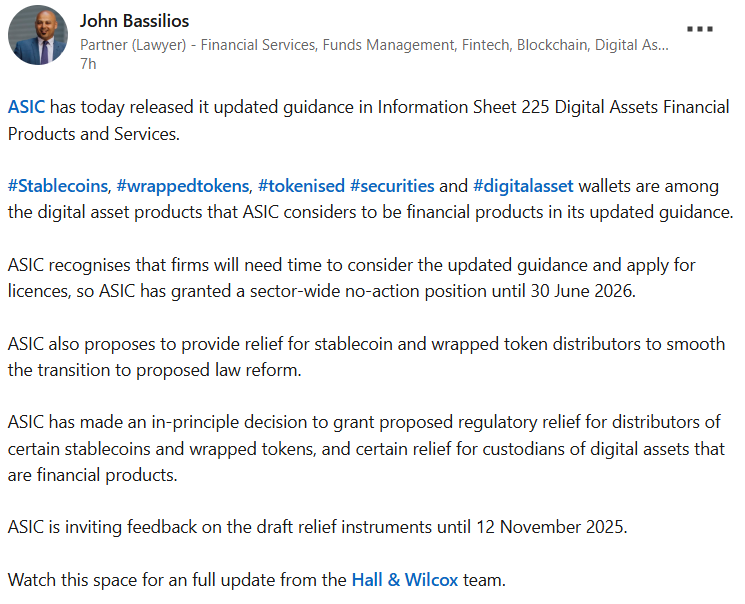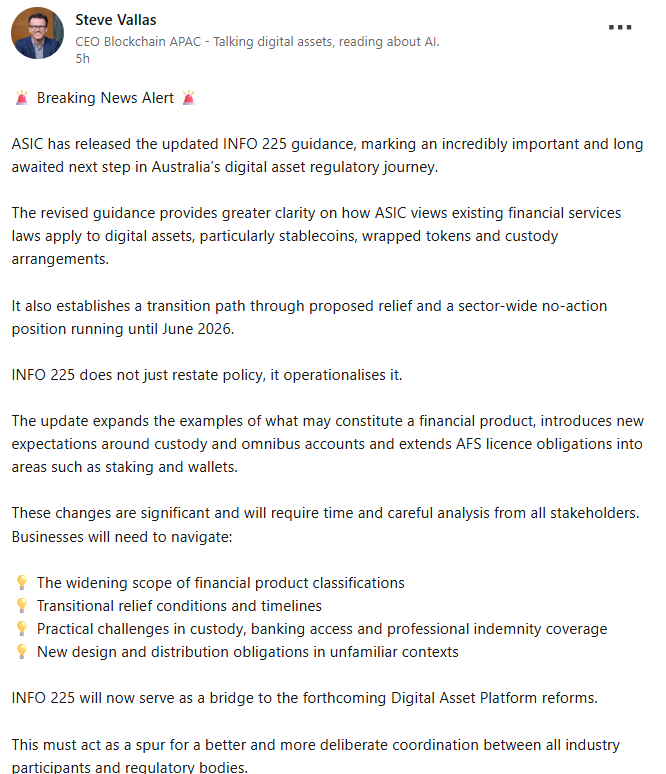
Australia's regulator releases anticipated guidance on cryptocurrencies amid ongoing issues
The Australian Securities and Investments Commission has issued new guidance on crypto assets, evoking positive reactions but raising concerns over resource management.
Australia’s corporate regulator, the Australian Securities and Investments Commission, has made public its new guidelines on cryptocurrencies. This update is met with positive feedback from industry leaders, although apprehensions exist regarding operational capacity.
The ASIC has revised its Info Sheet 225, announcing that from June 30, companies providing crypto services that are categorized as financial products must join the Australian Financial Complaints Authority and apply for an Australian Financial Services License.
Bitcoin Not Classified as a Financial Product
According to John Bassilios, a crypto lawyer and partner at Hall & Wilcox, Bitcoin (BTC), gaming NFTs, and tokenized concert tickets will not be categorized as financial products under the new directives. “If you’re an exchange and you only deal in Bitcoin, then you don’t need to apply for a license based on that guidance,” he noted.
 John Bassilios
John Bassilios
Source: John Bassilios
In contrast, ASIC identifies stablecoins, wrapped tokens, tokenized securities, and digital asset wallets as financial products in its latest updates.
Structural Challenges Persist
Steve Vallas, CEO of Blockchain APAC, expressed concerns that while the updated guidance brings a new level of clarity, it demands considerable coordination across various sectors to be successfully enacted. “They include limited recognized local expertise, banking access and insurance capacity. Without practical solutions, compliance risks shifting from a legal challenge to a logistical one,” he explained.
 Steve Vallas
Steve Vallas
Source: Steve Vallas
Long-Awaited Clarity
The CEO of the Digital Economy Council of Australia, Amy-Rose Goodey, remarked that the industry had long awaited such clarity. “It gives us an indication and visibility on ASIC’s position, how they’re going to treat the businesses within the digital asset sector, which we were not fully across until this point.” However, she raised worries about ASIC’s capacity to manage the influx of license applications methodically.
At present, the industry is undergoing a transition, with many businesses reassessing the licenses they need. The Albanese government has also proposed a new regulatory framework for cryptocurrency exchanges in March, aiming to harmonize them under existing financial services laws.


